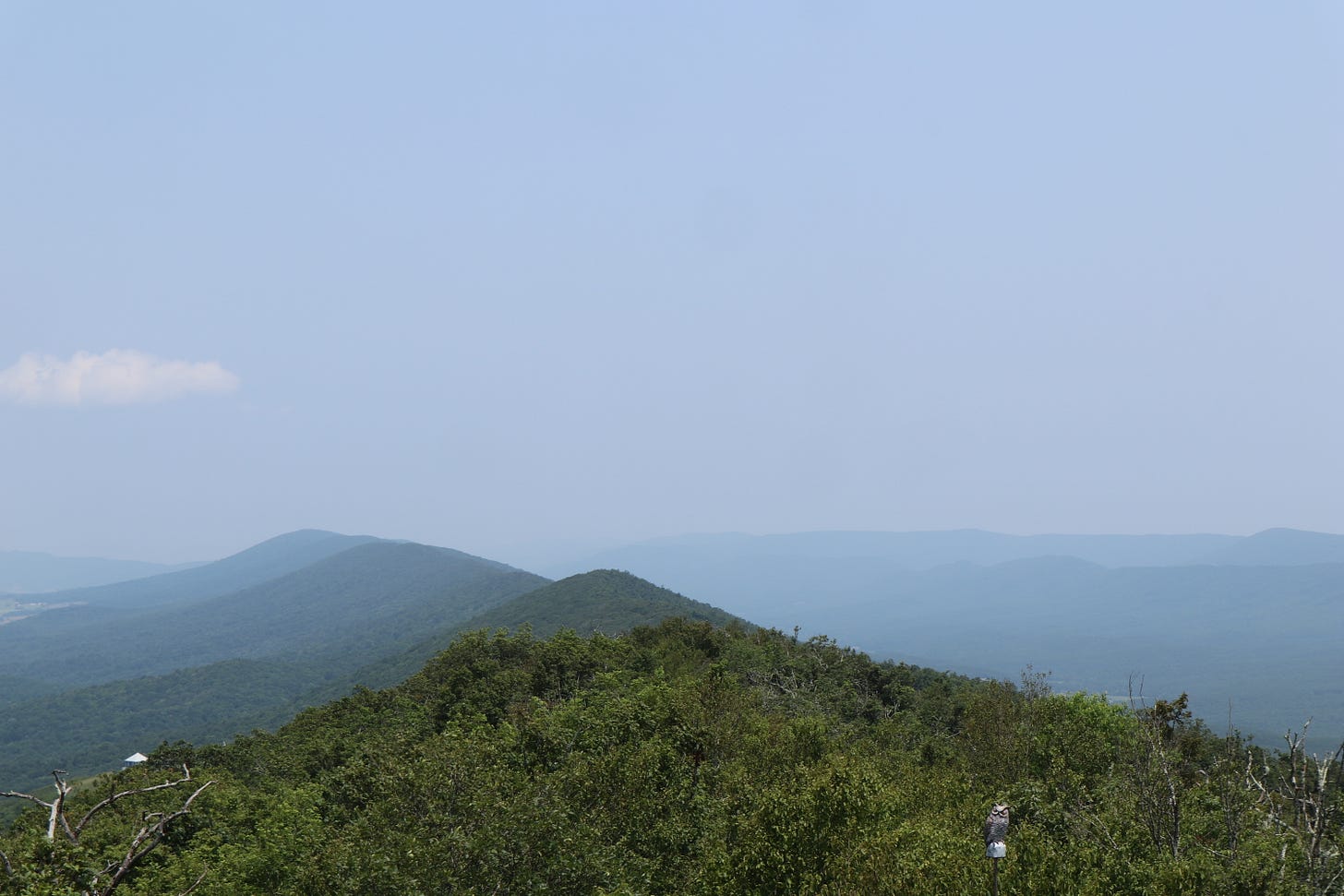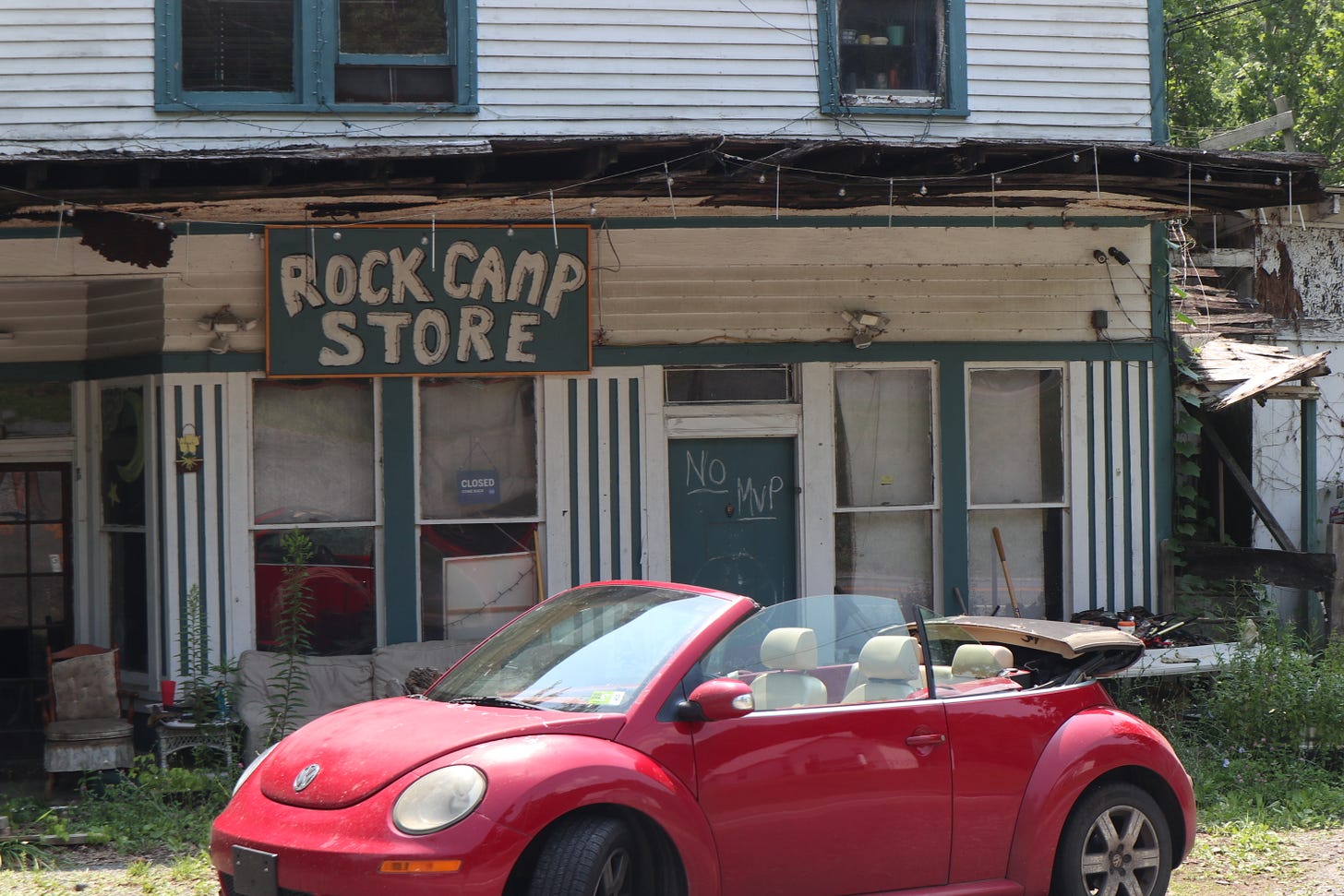In 2009, the coal company Massey Energy—which has conveniently (after a 2010 explosion that killed almost 30 miners) since become rebranded as Alpha Natural Resources—released a TV spot that referred to “tree-hugging extremists,” “our way of life,” and “the people of Appalachia.”* There are a few things about this ad that are, to borrow a word from older Appalachian dialect, sigogglin (crooked, off-kilter). First off, the narrator pronounces Appalachia wrong (saying “laysha” instead of “latcha”) which is just plain embarrassing. Then there’s “our way of life.” Unfortunately for coal companies, fighting coal companies is arguably Appalachians’ way of life. The largest labor uprising in U.S. history, the Battle of Blair Mountain in 1921, was part of a wildcat coal strike. Third, the coal industry loves to paint people who are opposed to strip mining or mountaintop removal or black lung disease as outsider extremists, but Central Appalachia, like anywhere in the U.S., is home to plenty of environmentalists—and people who are involved in environmental issues without calling themselves environmentalists per se.
In 2011 there was a Blair Mountain anniversary protest against the proposed mining of Blair Mountain (located in Logan County, WV) itself, a historic site worthy of preservation if there ever was one. West Virginian activists picketed along the road to Blair Mountain and were confused by other pro-coal West Virginians driving by who shouted at them to “go back to where you came from.” As Rebecca Scott, a professor of Appalachian Studies at the University of Missouri, explained to me, “The industry tries to say they're not from here. And if they are from here, then they don't work. If they are from here, then they're, you know, they're lowlifes or something.” She mentioned that a favorite line of pro-mining politicians and corporations is that the activists are from Massachusetts. “I don't know why Massachusetts gets chosen,” she laughed. “Massachusetts is where they come from. Because they're wealthy liberals. That's the idea. They're supposed to be wealthy liberals, out of touch. They're not. They're usually youth and activists from all over the place.”
If anything, coal, oil, and gas companies should be worried about the environmentally-concerned citizens who are from here and who aren’t going anywhere. One anti-pipeline advocate from southern West Virginia who I spoke to was walking around on her neighbor’s property, as she had been given permission to do, when a pipeline employee (most of whom are not local) told her to get off the land. When she wouldn’t budge, he gestured to a gun in the seat beside him. She responded in her thick drawl by telling him “Around here honey, it don’t matter how big they are, it’s whether you hit what you aim at. And when I aim, I don’t aim to kill you, I aim to ruin your life.”
A fellow who works in solar in rural Virginia showed me around a solar array he installed on his daughter’s elementary school. “You probably noticed my plates,” he said, by which he meant the “Don’t Tread on Me” license plate on the back of his electric truck. “Most people around here are Republican. I’m not. I don’t care what other people do with their lives as long as they don’t infringe on mine. I just don’t want us to completely destroy the environment, and I want my daughter to be able to tell her friends that her daddy put those panels on the roof.” “I used to be part of the grunge scene around here, you know,” he told me. “I did the eyeliner and the black nail polish.” I could see that he had always been a rulebreaker in these parts, whether in makeup or in terms of his energy politics. “I’m surprised you had the social license to be a grunge kid around here,” I said. “Oh I did not,” he corrected me. “Me and my friends would skateboard all over town and the cops would chase us. And those of us who aren’t in jail or dead, we still play music sometimes.” He looked down at the logo on his work polo, amused. “And now I work for this company and I get to do awesome stuff like this,” he said, gesturing at the roof. "I thank God every day for my life.”
*credit to Shannon Elizabeth Bell’s Fighting King Coal, where most of my research on coal TV ads comes from
MVP stands for “Mountain Valley Pipeline”






